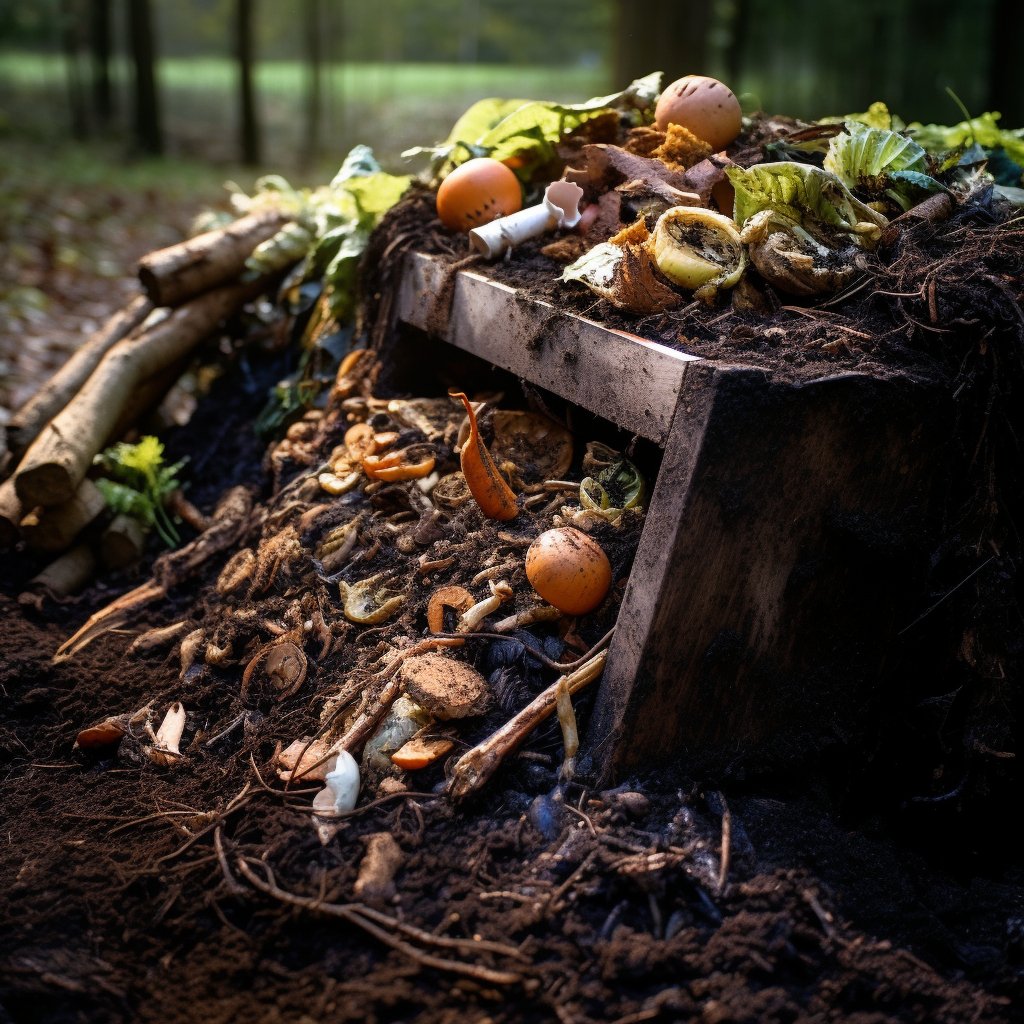Composting Fundamentals: Turning Waste into Fertile Soil
Composting is an ancient practice that transforms organic waste into valuable nutrients for your garden. It’s a sustainable method for turning kitchen and yard waste into "black gold," a nutrient-rich soil additive that enhances soil health and supports plant growth. In this comprehensive guide, we'll explore the essentials of composting and how you can turn waste into garden gold.
1. Understanding the Composting Process
Composting is a natural and ecological process that involves various microorganisms, such as bacteria and fungi, which work together to decompose organic matter. This organic matter is transformed into a substance that resembles humus, which is beneficial for soil health. To successfully create garden compost, it is essential to maintain a proper balance between two different types of materials. The first type is carbon-rich materials, often referred to as "browns," which include items like dried leaves, cardboard, and paper.
The second type is nitrogen-rich materials, commonly called "greens," which include items like food leftovers from your kitchen and newly mowed grass.
By combining these types of materials in the right proportions, you can facilitate an efficient composting process that ultimately results in nutrient-rich compost.
2. Choosing the Best Compost Method
There are several methods to compost, and choosing the right one depends on your space, needs, and preferences:
- Traditional Composting Bins: Ideal for larger yards, providing ample space for composting.
- Tumblers and Rotating Bins: Suitable for smaller spaces and offer quicker composting.
- Vermicomposting: Utilizes worms to break down waste, suitable for indoor composting.
- Bokashi: A fermentation method that can handle more varied waste types, including meat and dairy.
3. Setting Up Your Compost Bin
To successfully set up your composting system, there are a few important steps you should follow:
- Select a Location: It is essential to choose a location that is well-drained and has good airflow. Look for an area in your yard or garden that does not accumulate water and allows for proper ventilation. This will help your compost pile decompose effectively and reduce any unpleasant odors.
- Build or Buy a Compost Bin: Depending on the method of composting you prefer, you can either construct a composting bin yourself or purchase one from a store. If you opt to build your own, consider using materials that are durable and allow for ventilation. Alternatively, if you decide to buy a bin, there are many options available that can suit various needs and spaces.
- Start with a Base: Begin your organic compost pile by creating a base layer of coarse materials such as twigs or small branches. This base layer is important because it helps to create air pockets within the compost pile, facilitating good airflow. Proper airflow is crucial for the decomposition process, as it helps microorganisms break down organic materials effectively.
4. What to Compost and What to Avoid
When it comes to composting, there are certain materials that can be added to your compost pile or bin, as well as others that should definitely be kept out for the best results. Here are some general guidelines to help you navigate what to include and what to avoid:
Do Compost: You can safely add fruit and vegetable scraps to your compost, as they break down easily and provide valuable nutrients. Additionally, coffee grounds are an excellent choice since they not only contribute to the nitrogen content but also attract worms that help aerate the compost. Crushed eggshells are also beneficial, as they add calcium and help balance the acidity in the mixture. Yard waste, such as grass clippings, leaves, and small branches, can also be composted, as they are rich in carbon and help create a healthy compost environment. Finally, untreated paper, like shredded newspapers and cardboard, can be included as long as they do not have any glossy finishes or harmful inks.
Avoid Composting: On the other hand, there are several types of materials that you should avoid placing in your compost pile. Dairy products should not be composted because they can cause unpleasant odors and attract pests. Similarly, meat should be kept out of your compost for the same reasons, as it can become a breeding ground for flies and other scavengers. Diseased plants must also be excluded to prevent the spread of pathogens that could affect your other plants. Moreover, pet waste is a definite no-go, as it can introduce harmful bacteria and parasites into the compost. Lastly, be cautious about adding synthetic chemicals or treated wood, as these can disrupt the natural decomposition process and harm the ecosystem you are trying to nurture.
5. Maintaining Your Compost Pile
To ensure that your composting process remains effective and produces high-quality compost, it is essential to carry out proper maintenance. This involves several key practices that you should follow regularly.
- Turn Regularly: By aerating the compost and turning it on a consistent basis, you can significantly speed up the decomposition process. This involves using a pitchfork or compost turner to mix the materials, allowing oxygen to reach all parts of the pile. This is important because oxygen helps the beneficial microorganisms break down organic matter more efficiently, resulting in faster composting.
- Monitor Moisture: It is crucial to keep an eye on the moisture levels of your compost pile. You want to ensure that it is damp enough to facilitate decomposition, but not so wet that it becomes soggy or waterlogged. A good way to check is to grab a handful of compost; if it holds together but does not drip water, the moisture level is just right. If it is too dry, you can add a little water, while if it is too wet, you may need to add more dry materials to balance it out.
- Check Temperature: Keeping track of the temperature of your compost pile is another important factor in the maintenance process. A hot compost pile is a sign that decomposition is actively occurring, and it should feel warm to the touch in the center. This heat is generated by the microbes breaking down the organic matter. If the pile is not heating up, it may need more nitrogen-rich materials or better aeration.
- Watch for Pests: It is important to secure your compost pile to prevent unwanted pests from invading. This includes ensuring that the materials are layered correctly and that food scraps are well buried within the pile. You might also consider using a compost bin with a lid or a well-aerated design to keep animals and insects away while still allowing air circulation.
6. Utilizing Your Compost
Once your compost has reached a stage where it appears dark, crumbly in texture, and emits a pleasant earthy smell, it indicates that it is finally ready for use in various gardening applications.
- Soil Amendment: You can enhance your existing garden soil by mixing this rich compost with it. This process not only improves the overall structure of the soil, making it more loose and workable, but also increases the nutrient content. This will provide vital nutrients that plants need to thrive, promoting healthy growth and productivity.
- Mulching: Another way to use compost is by spreading it as a layer of mulch around your plants. This layer of compost will help suppress the growth of unwanted weeds, which can compete with your plants for nutrients and water. Additionally, it aids in retaining moisture in the soil, creating a more stable environment for your plants, especially during dry periods.
- Potting Mix: If you are engaged in container gardening, you can incorporate the compost into potting soil to create a nutrient-rich potting mix. By blending compost with potting soil, you provide your potted plants with a more abundant supply of essential nutrients, which can enhance their growth and overall health.
Conclusion
Composting is a beautiful synergy between waste reduction and garden enrichment. By understanding and implementing these composting essentials, you can contribute to a sustainable ecosystem and save money because you don't have to buy compost. .
At Green Genius, we offer a wide range of composting products and accessories to support your composting journey. Whether you're a beginner or a seasoned composter, we're here to guide you every step of the way. Visit us to discover how you can transform waste into garden gold today!

